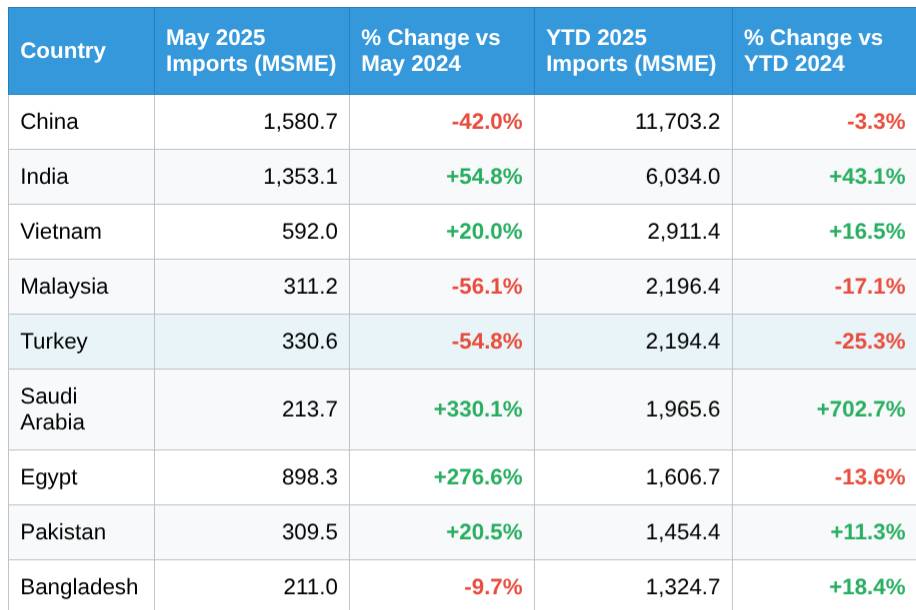The Future of Travel Marketing: Smarter Discovery Through AI Platforms
Travel marketing looks nothing like it did five years ago. Vacation dreamers no longer rely solely on search engines. Voice assistants, TikTok recommendations, and AI trip planners now influence where people go next. More discovery happens off traditional search pages every day.
In this blog, we’ll demonstrate how understanding search behavior, selecting the right digital marketing platform, and leveraging up-to-date insights enable your travel brand to stay visible wherever travelers look.
Competition in the travel industry continues to grow. Travelers compare dozens of options before booking flights or hotels. Many switch between devices while researching, so tracking what works becomes harder. More brands push ads into feeds and search results every day. This pushes up ad costs. Small and mid-sized travel businesses feel this squeeze the most.
Paid ads alone rarely create lasting growth anymore. Many travel marketers already know how quickly clicks vanish when budgets run dry. Even organic search feels less stable. Generative AI search means more people get answers without clicking any links.
Travel buyers want answers fast. They ask specific questions. “Best time to visit Crete” or “family-friendly hotels near Legoland.” Marketers trying to guess these trends too late often miss opportunities. It gets harder to capture demand once your competitor claims those top spots.
Modern marketing platforms combine AI with massive, fresh data to help brands adapt to these changes. An AI marketing platform with predictive tools spots early trends.
For example, a spike in searches for shoulder-season destinations or new local experiences often appears in keyword data before booking numbers increase. Acting early allows marketers to create pages or deals while competition remains low.
AI does more than automate tasks. A good AI system understands context. It groups related keywords, connects them to real traveler questions, and suggests how to build pages that match voice searches or AI-generated answers.
Marketers who rely on old reports often miss signals hidden in real behavior. For example, people planning luxury getaways might search differently than backpackers hunting for hidden beaches. One-size-fits-all targeting wastes money. AI tools split signals by audience segments, so your content and ads speak to each group more directly.
Search habits shift fast. One summer’s trending island might fade next year. AI-powered data platforms help teams watch these shifts daily instead of quarterly. Small tweaks, such as adjusting headlines for conversational searches or adding local tips to compete with influencer videos, keep pages discoverable when people search on voice assistants or social feeds.
Many travel brands rely on Ahrefs because it combines fresh, real-world data with AI that actually understands shifting marketing trends. For over fifteen years, Ahrefs has crawled the web independently. This AI marketing software gives marketers up-to-date insights into what people search for, which pages attract links, and what content travelers share most.
One major benefit involves spotting gaps. Let’s say a boutique hotel chain wants to rank for “romantic getaways in the Alps.” Ahrefs shows who already ranks, what pages attract backlinks, and which new questions people ask. Marketers plan content that matches real questions instead of guessing keywords.
Another strength comes from AI that knows how marketers think. It does not flood teams with meaningless charts. It suggests actions: update old pages, create new ones for emerging topics, or monitor how competitors adapt.
Everything works inside one platform. Small brands do not have time to juggle disconnected tools. A team managing multiple properties or regions can plan, publish, and track performance in one place. Large hotel groups need scale. Ahrefs’ infrastructure handles massive sites without slowing down.
Trends move fast in travel. Many marketers miss chances because they rely on quarterly keyword lists. Ahrefs uses its real-time crawling to spot shifts before they peak. This helps teams launch content for upcoming events, hidden destinations, or shoulder-season promotions while clicks remain affordable.
As an enterprise marketing software, Ahrefs suits various players as well. Boutique resorts use it to find niche search angles. Global hotel groups use it to coordinate local and international pages. Any travel marketer tired of guessing finds clarity when AI and fresh data work together.
Search, social, and AI assistants are continually rewriting how travelers discover their next adventure. More people skip traditional search engines and trust recommendations from short videos, voice queries, and AI summaries. Marketers relying only on classic SEO tactics risk losing visibility when discovery shifts to new platforms.
Savvy marketers plan for this. They combine predictive data, real behavior insights, and flexible tools that adapt quickly. Guesswork disappears when your marketing analytics software shows what real travelers want now and what they might look for next season.
Travel marketing remains one of the most competitive digital spaces. Rising ad costs and shifting behaviors will not slow down. Brands that stand out know how to balance organic and paid strategies, test new channels, and optimize for search, social, and AI. Having the right tools in place lets you identify what works, discard what doesn’t, and maintain your brand visibility regardless of changing search habits.
Casey Winslow is a digital strategist who turns search engines into travel agents. Armed with Ahrefs, AI, and a love for digital discovery, she helps brands plot their path to visibility.
You may also like...
Diddy's Legal Troubles & Racketeering Trial

Music mogul Sean 'Diddy' Combs was acquitted of sex trafficking and racketeering charges but convicted on transportation...
Thomas Partey Faces Rape & Sexual Assault Charges

Former Arsenal midfielder Thomas Partey has been formally charged with multiple counts of rape and sexual assault by UK ...
Nigeria Universities Changes Admission Policies

JAMB has clarified its admission policies, rectifying a student's status, reiterating the necessity of its Central Admis...
Ghana's Economic Reforms & Gold Sector Initiatives

Ghana is undertaking a comprehensive economic overhaul with President John Dramani Mahama's 24-Hour Economy and Accelera...
WAFCON 2024 African Women's Football Tournament

The 2024 Women's Africa Cup of Nations opened with thrilling matches, seeing Nigeria's Super Falcons secure a dominant 3...
Emergence & Dynamics of Nigeria's ADC Coalition

A new opposition coalition, led by the African Democratic Congress (ADC), is emerging to challenge President Bola Ahmed ...
Demise of Olubadan of Ibadanland
Oba Owolabi Olakulehin, the 43rd Olubadan of Ibadanland, has died at 90, concluding a life of distinguished service in t...
Death of Nigerian Goalkeeping Legend Peter Rufai

Nigerian football mourns the death of legendary Super Eagles goalkeeper Peter Rufai, who passed away at 61. Known as 'Do...



